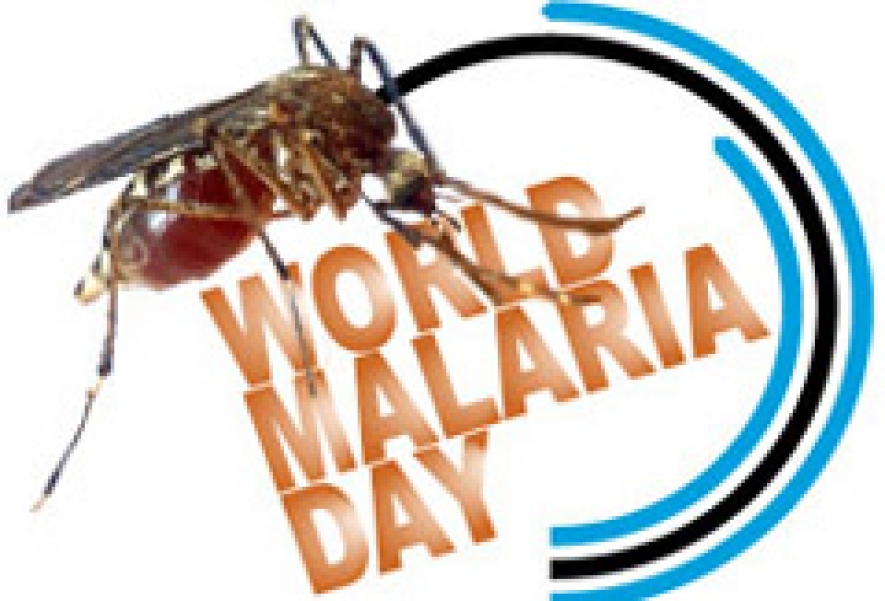Malaria is not only a deadly disease but also a devastating disease that has far reaching social and economic implications. When this disease was prevalent in the country, considerable proportion of its population was severely affected. Apart from the physical illness, the debilitation that followed was immense and that in turn affected their livelihoods and social and economic aspects of their families.
This disease was once among the leading causes of hospitalization in Sri Lanka and engulfed more than half of the health budget allocated for preventive health services.
Due to the continuous efforts by the health services supported by many stakeholders, Sri Lanka was able to eliminate this disease and in 2016, World Health Organization certified Sri Lanka as a malaria free country.
However, Sri Lanka is constantly at risk of getting malaria back due to the large number of people travelling to and from countries having malaria and due to the presence of mosquitos responsible for the spread of the disease in all parts of the country.
In each year around 50 cases of malaria are reported from various parts of the country from these travellers. If these cases of Imported Malaria are not detected early and treated promptly, there is an enormous risk of getting an epidemic of malaria back in the country.Public support through awareness is the key to get these imported cases detected and treated early.
In this context, the attached fact sheet contain pertinent information on the gravity of the problem, countries where the disease is prevalent, the risk of re-introduction of Malaria back in to Sri Lanka and the steps needed to be followed by the public to keep the country free of Malaria.
Fact sheet on Malaria Background:
Malaria has been one of the most devastating diseases of the mankind. It is transmitted from one person to another through a mosquito bite infected with malaria parasites and is an entirely preventable and treatable mosquito-borne illness.
Global situation:
According to the World Malaria Report 2017, there were an estimated 216 million cases of malaria and 445 000 malaria deaths in 2016.Major proportion of malaria cases and deaths occur in Sub-Saharan Africa while South-East Asia, Eastern Mediterranean, Western Pacific, and the Americas are also at risk.• Malaria is a major cause of death among children under five in the world.
South-East Asia Regional (SEARO) situation:
According to the WHO estimates, there were 14.6 million malaria cases in the SEARO region in 2016 comprising of both Plasmodium falciparum (66%) and Plasmodium vivax (34%) cases. Afghanistan, Ethiopia, India, Indonesia and Pakistan accounted for 85% of the estimated Plasmodium vivax malaria cases in the world. Further, the SEARO region is facing the threat of multi drug resistant malaria.
Maldives and Sri Lanka have already eliminated malaria.
Sri Lanka's story of success in malaria elimination:
Malaria was endemic in Sri Lanka for many centuries and several major epidemics have occurred in the past. Malaria control activities lead to a near-elimination status in the 1960's, followed by a massive resurgence. Through a great effort, the country steadily reduced the malaria burden from over 400,000 cases in 1991 to zero cases by November 2012; an achievement made despite a 30 year old civil conflict in the country. Today, Sri Lanka is celebrating the 6th consecutive year with no indigenous malaria.
WHO certification for malaria elimination:
Sri Lanka was awarded the World Health Organization (WHO) certification for malaria elimination in September 2016. The Anti Malaria Campaign, Ministry of Health along with its partners has worked tirelessly to achieve the present success in the country.
The risk of re-introduction:
Although Sri Lanka has eliminated indigenous malaria, we still get imported malaria cases from malaria endemic countries such as India and African countries. Risk of resurgence of malaria is very high in the
context of imported malaria cases, presence of malaria mosquito in the country and the recent discovery of a new vector mosquito from the Northern province. There were 41 and 57 imported malaria cases in 2016 and 2017 respectively.
High risk groups for imported malaria:
Sri Lankans:
Persons who travel to South Asian countries including pilgrims to India
Gem traders travelling to African countries like Madagascar and Mozambique
Military personnel returning from UN peace-keeping missions in the African region
Returnees from South India resettling in North- East areas
Foreign nationals:
Tourists arriving from or traveling through malaria endemic countries
Workers from malaria endemic countries
Refugees/ Asylum seekers from Pakistan, Afghanistan and Myanmar
If you are planning to travel to a malaria endemic country:
• Please get advice and malaria preventive drugs from Anti Malaria Campaign free of charge one week prior to leaving.
• Avoid mosquito bites during your overseas stay.
• If you get sick on your return to the country, get your blood tested for malaria as welll from Anti Malaria Campaign free of charge.
• More importantly, if you develop fever after coming back, tell your doctor IT COULD BE malaria and get a malaria test done.




















